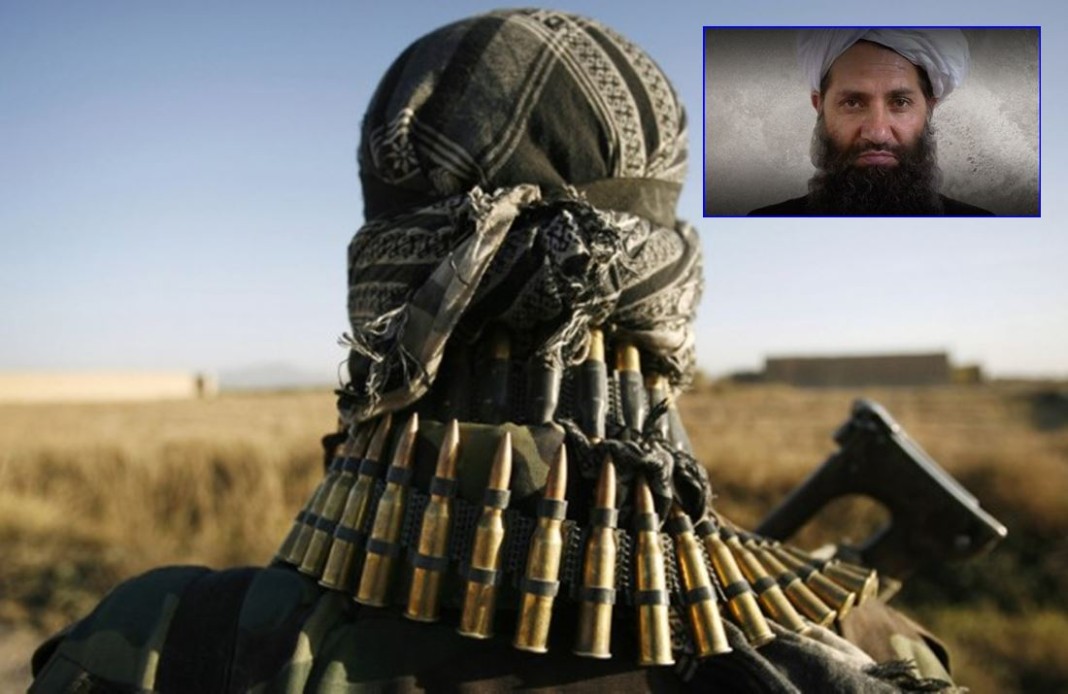Who is the new head of the Taliban
Maurizio Piccirilli,
May 30 2016.

Once a leader is killed,
another one steps in. Obama’s deadly drones armed with Hellfire
missiles killed Mullah Omar’s successor, the undisputed leader of
the Taliban.
Akhtar
Mansour had ruled the militias of the black turban for little less
than a year. Nevertheless, scholars of the Koran immediately filled
the void. Thus, forty-eight hours after the news about Shura’s
death, a new leader was crowned: Mullah Haibatullah Akhundzada, a
prominent judge in religious matters, who had been chosen as deputy
leader by Akhtar Mansour, the Taliban leader killed on May 21 by a
U.S. drone in Pakistan. The choice of the leader has been the result
of a series of meetings between the leaders of the group in Quetta,
Pakistan. The decision was quick, probably to prevent new divisions
within the movement.
Haibatullah Akhundzada, a
respected and authoritative religious man, Mullah Omar’s former
confidant, can boast excellent mediating qualities and roots that
connect him to Kandahar, the cradle
of the Taliban “old guard”. His leadership will have undergo its
first trial on the issue of negotiations with Kabul, shaken by
Mansour’s death. Among other things, the new guide will seek to
strengthen its power by finding an agreement with another Taliban
leader who can boast a strong following.
In fact, Sirajuddin Haqqani,
who has taken his father’s place in 2005, becoming head of the
Jalaluddin Haqqani network, the network of Islamists that operates
mainly in the border provinces of Afghanistan and Pakistan and claims
headship.
The offspring of the Haqqani
family is at the head of a true financial empire.
He is merciless on
the battlefield and a skilled negotiator who boasts strong
relationships with the Pakistani secret services, which will not
refuse to “support” him, of course.
So far, the scenario of succession, but Mansour’s assassination
seems to be yet another own goal in Washington’s strategy on the
Afghan-Middle East chessboard.
In fact, the death of Mullah Omar’s
successor might open the door to Afghanistan to Isis, thus providing
a new shelter to Caliph Al Baghdadi, in trouble in Iraq and Syria.
Moreover, the group has already penetrated in some jihadist circles
of this region. In November, Abdul Rahim Muslim Dost, a former
Guantanamo detainee, was appointed interim emir of Khorasan, and in
summer a group of al-Qaeda militants close to Gulbuddin Hekmatyar,
leader of Hizb-e-Islami (one of the first militias in Afghanistan to
fight the Soviet occupation in the 70’s) has switched sides and
pledged allegiance to Isis.
Then there is another reason,
of theological nature, which would explain a possible “coup”
against the Taliban. Until the day when his death was announced,
Mullah Omar had been the only “Amir al-Mumineen” ( “Commander
of the Faithful”) in
nthe jihadist sphere capable of challenging the creeds of the
newly-Caliph of Mosul, whereas al Zawahiri, on the contrary, has
never boasted titles or awards, renewing from time to time his
support to the Afghan Emirate.
In fact, he wrote a letter to
al-Baghdadi some time ago, warning him not to set foot in
Afghanistan. “The jihad against the Americans and their allies
should be conducted under one sole flag,” he said. Theirs and
Mullah Omar’s, of course. A threat spread in the same days when
Taliban militants clashed with Isis east of the Afghan region.
Mansour deployed over one thousand men, the most prepared to fight
the Daesh militias in Afghanistan.
The difference between the two
groups in Afghanistan is a one-way rivalry at root: Al
Qaeda and the Taliban in the past have always shown themselves
willing to compromise with their domestic enemies, despite their
ideological and religious differences. One of the most eloquent
examples were the disputes with the Deobandi School, which were set
aside. However, Isis thinks in other terms: the global jihad is a
phenomenon closely related to the state-building process wanted by al
Baghdadi, which is the specular reflection of the imperialist goal. The Taliban want to return to power in Kabul; they have no
expansionist ambitions.
A slap in the face of American
politics. The choice made by the U.S. will only create further chaos
in the Afghan situation, where the government has no control over the
country, except for a few big cities.
The Taliban have shown noteworthy military skills when they sized
Kunduz last autumn. Encouraged by success, Mansour had opened a
narrow window of opportunity to engage in negotiations with the
government in Kabul.
Now, everything has been destabilized again. The
disappearance of Mansour, head of the Taliban, but also Isis’
greatest enemy in the area, along with the exit strategy launched by
NATO in Afghanistan and the shaky situation in Libya and Syria, can
contribute to Isis’ expansion into a region where 15 years later,
after a massive international intervention, the goal of eliminating
terrorism has not yet been achieved.
SOURCE: Interris


